If you accidentally hit a curb while driving, you might wonder if the impact can cause your tire to go flat. We've researched this topic, and here's what we found out.
You can get a flat tire when your vehicle hits a curb. It depends on the nature of the impact between the tire and the curb. After hitting a curb, you should promptly inspect your tire to ensure it is in good condition for driving.
Knowing what to do if your vehicle hits a curb is important. This article will cover whether hitting a curb is a big issue, the necessary steps to take after hitting a curb, and tips on avoiding future accidents. Continue reading to learn the answers to these questions.
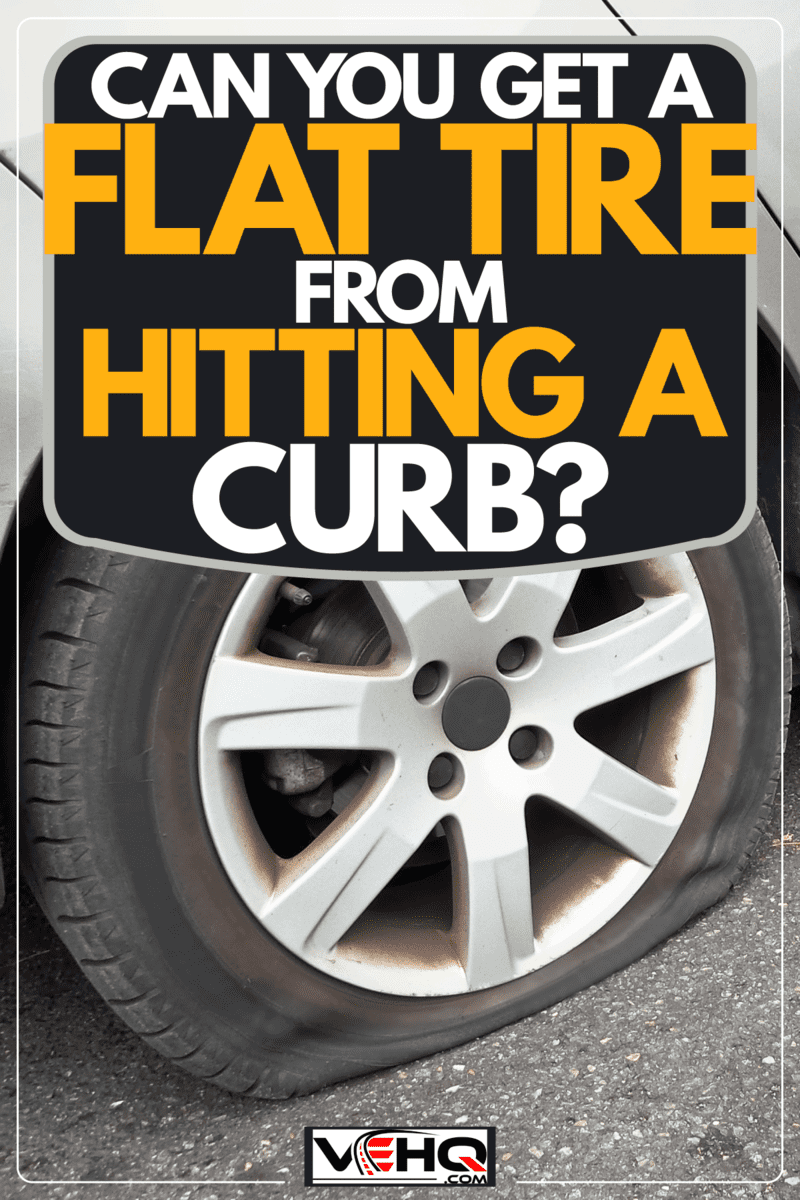
Will Hitting A Curb Result In A Flat Tire?
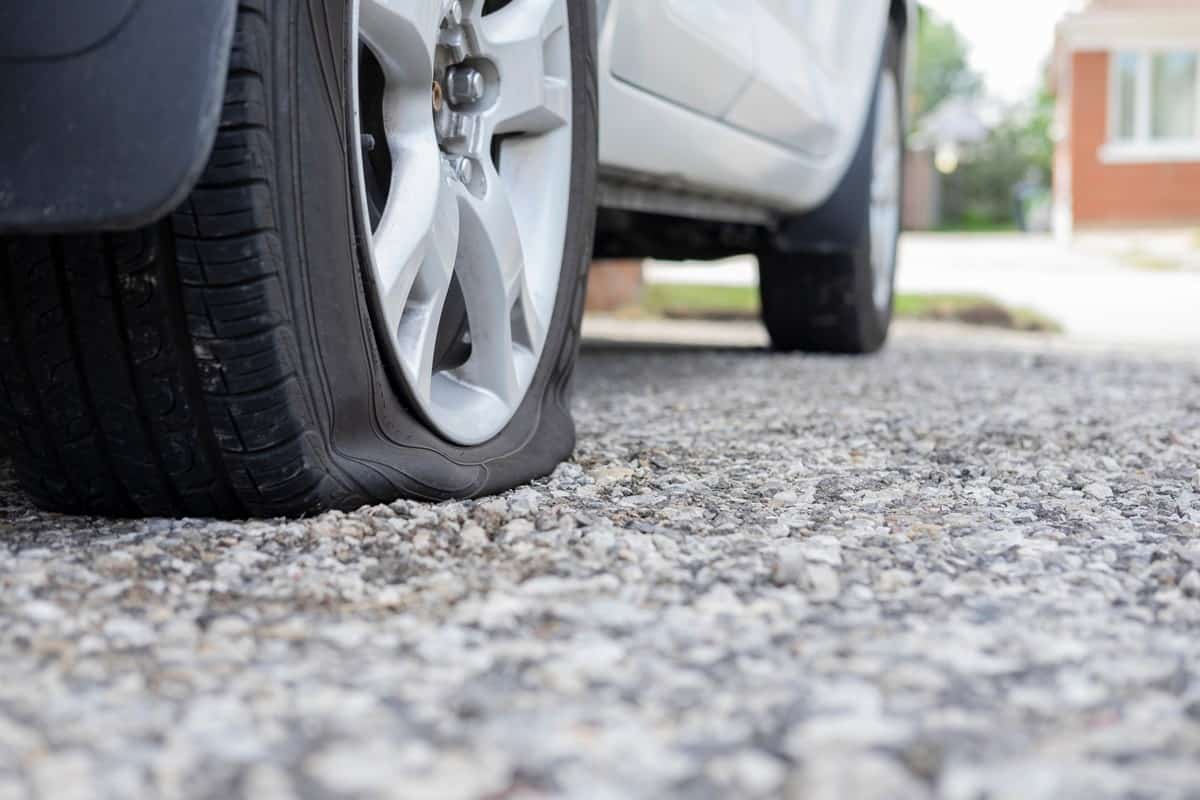
When a vehicle hits a curb, the impact can cause a flat tire. The damage caused by the impact between the tire and the curb depends on the force of the impact, its angle, and the tire's condition.
If you're driving the car at a high speed and hit a curb, there is a high chance that the tire's sidewall will tear, resulting in low pressure and, ultimately, a flat tire.
However, even if the tire does not completely deflate, small tears caused by the impact can go unnoticed and still cause the tire to become flat over time. This is particularly true if the tire is fragile or old, as it is more prone to damage.
Is Hitting A Curb A Major Problem?
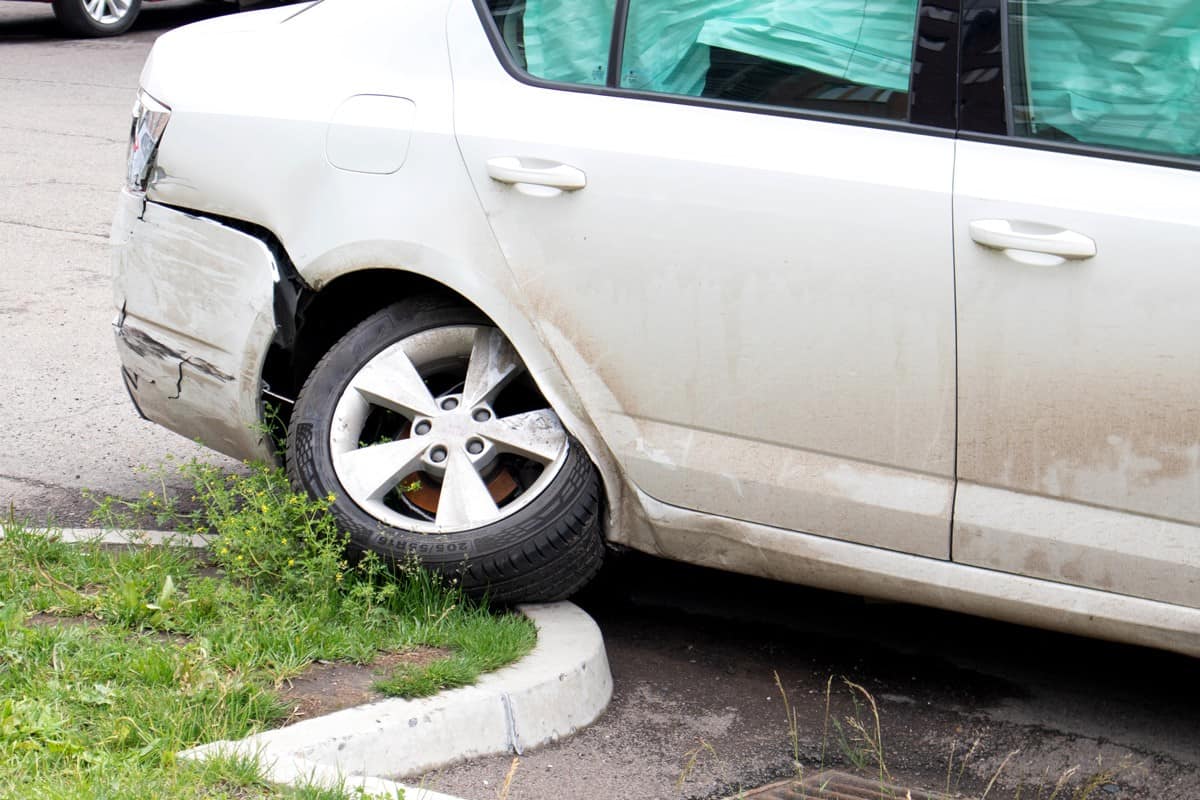
Hitting a curb can have serious consequences. It can result in flat tires and damage to other vehicle components. When parts of your car are damaged from hitting a curb, it can lead to several issues. Here are the potential results of hitting a curb:
Damaged Rims
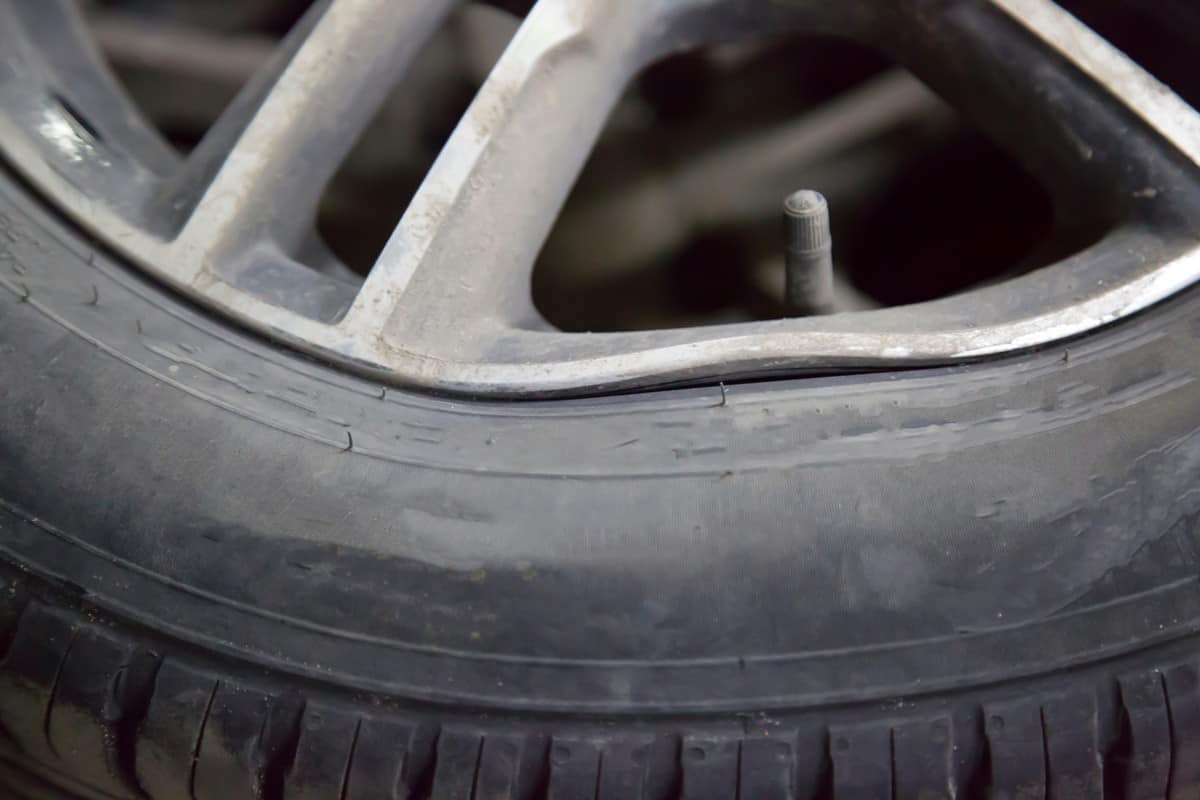
Hitting a curb, especially when the impact is strong, can damage your rims. Scratches and paint peeling can happen as a result. Additionally, the impact can cause your tire to flatten as the rim won't seal properly.
Tire Blowouts
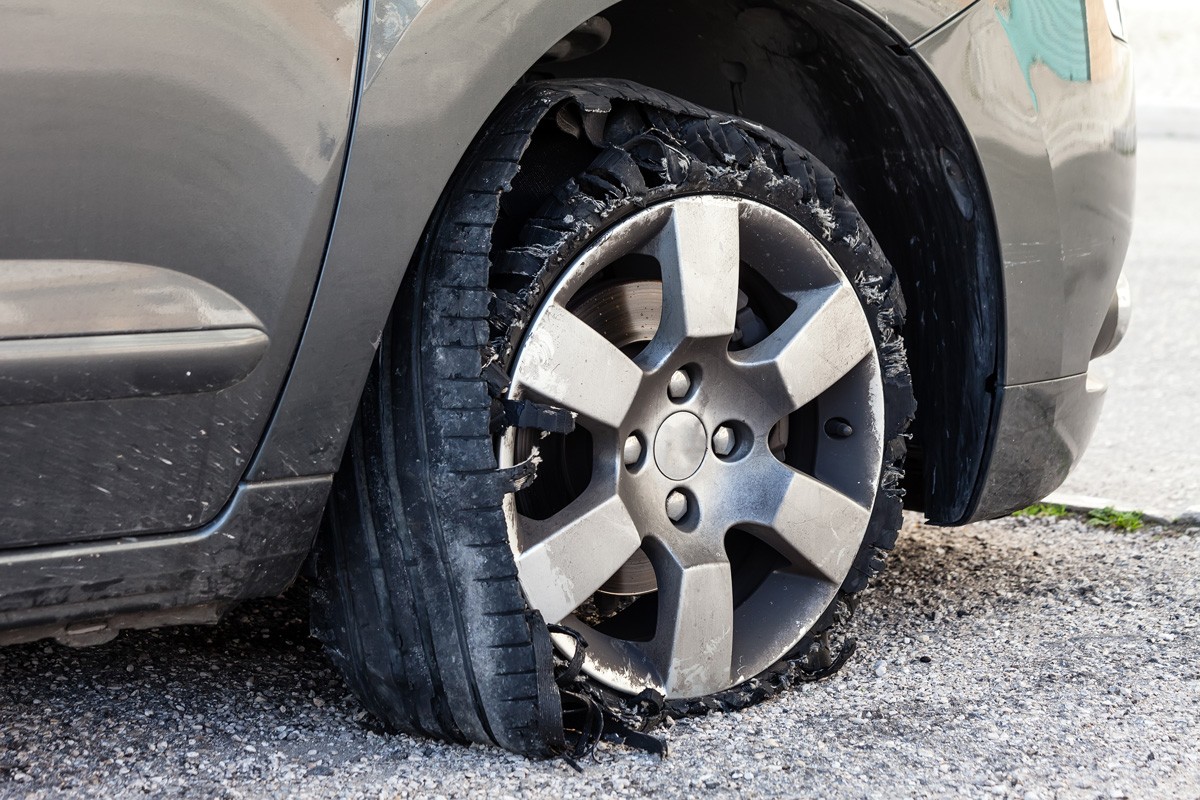
When hitting a curb, the tire is the component that is most susceptible to damage, with the sidewall being the most vulnerable area due to its thinner structure. The impact can cause a blowout.
Also, valve stems are present in tires, allowing for inflation and deflation. If the impact of hitting a curb affects the valve stem, it will likely get damaged and release the air from the tire, causing it to flatten.
Excessive Bouncing
Excessive bouncing may happen if the impact damages your suspension. Suspension mitigates your vehicle's bouncing while driving on rocky roads.
If the suspension is damaged, you will no longer have control over the bouncing, and it may get worse if you continue driving.
Difficulty in Steering
Hitting a curb can result in damaging your wheel rims, which can have an impact on the steering wheel.
If the wheel rim loses its shape, is misaligned, and is in poor condition, it may result in the shaking of the steering wheel while driving, affecting your ability to control the vehicle on the road and leading to early tire degradation.
If your suspension is damaged, you might encounter difficulties maneuvering your vehicle while making turns.
Unusual Noises
If your car was harmed by hitting a curb, you might hear unusual sounds while driving due to a damaged suspension or other components.
What To Do After Hitting A Curb?
Curbs may appear harmless, but they can significantly impact your vehicle and may lead to difficulties as they can affect your tire, wheel rim, and suspension.
If you neglect any damage after hitting a curb, it can get worse over time. Therefore, it is crucial to inspect your vehicle's parts promptly after hitting a curb, regardless of whether the impact is low or high.
When you hit a curb, you should pull over to the side of the road and inspect your vehicle to ensure it is safe to continue driving. Check your wheel first to see if it is damaged. You may see scratches or damage on the rim, and your tire could suddenly become flat.
Cracks can be a severe problem because they may cause your wheel to collapse. Be sure to listen for any sounds of air leaks after hitting a curb, as some leaks may not be immediately visible. Check the sidewalls of your tires, as they are the delicate and susceptible to damage from impact.
Also, check under your vehicle to see if the suspension is damaged. You may have difficulty controlling your car if you continue to drive with a damaged suspension.
After hitting a curb, you may notice odd sounds while driving. If you notice any of these issues, you should not continue to drive.
For a more thorough inspection, it's best to take your vehicle to a mechanic who can assess any damages caused by the curb impact. The mechanic may replace your wheel if they see any serious damage.
It is recommended to take smoother roads instead of bumpy ones when traveling to a shop for repair to avoid potential hazards like tire blowouts. This will help ensure a safer driving experience.
However, it is useful to have knowledge about how to fix issues with your car, as there may be situations where you don't have access to assistance. It is also essential to carry tools in your vehicle so that you can take action whenever you encounter a problem.
After inspecting your vehicle, regularly monitor the tire pressure for unseen small air leaks.
Click here to see this Entai basic tool kit set on Amazon.
Can Hitting A Curb Damage A Wheel Bearing?
A wheel bearing is one of the components that may get damaged if the impact of the curb on your car is severe. The wheel bearing's primary function is to provide a smooth wheel rotation.
If it gets damaged, you may experience difficulty controlling the wheel, which can significantly affect your driving experience.
You should have a professional mechanic check the wheel bearing to prevent further and ensure your safety while driving. The mechanic may even replace it if it is severely damaged.
Click here to see this wheel bearing on Amazon.
How To Keep From Hitting Curbs
Keeping some distance between your vehicle and the curb is advisable to avoid accidents and damage to your car.
Also, you must be careful when parking your vehicle. Your rearview and side mirrors can be valuable aids when parking, as they provide a view of different angles of your car and help you avoid colliding with curbs.
If you are still unsure about parking, you can enroll in driving classes where experts can guide and assist you in proper parking techniques. Achieving the ideal parking position close to the curb requires consistent and dedicated practice.
In Closing
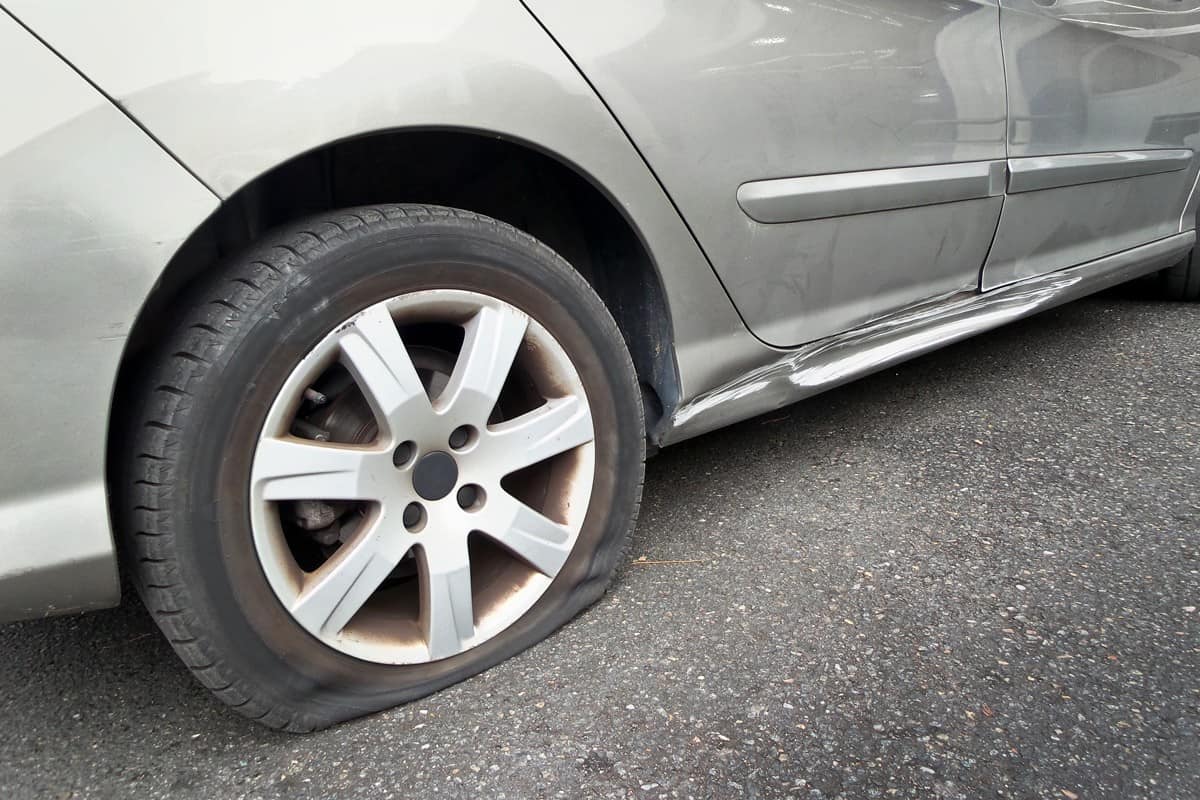
Hitting a curb can result in various issues with your vehicle, including flat tires, rim damage, excessive bouncing, steering difficulties, and unusual noises. It is crucial to inspect your tire, rims, and suspension after any curb impact, regardless of the severity.
Even non-sharp surfaces can pose a risk to you and your vehicle, so driving cautiously and being aware of your surroundings is essential. Maintaining your car is also critical to ensure safe driving and identify any potential damage over time.
Before you go, take a look at the following links for more information on tires:
How Long Can A Car Sit On A Flat Tire?


